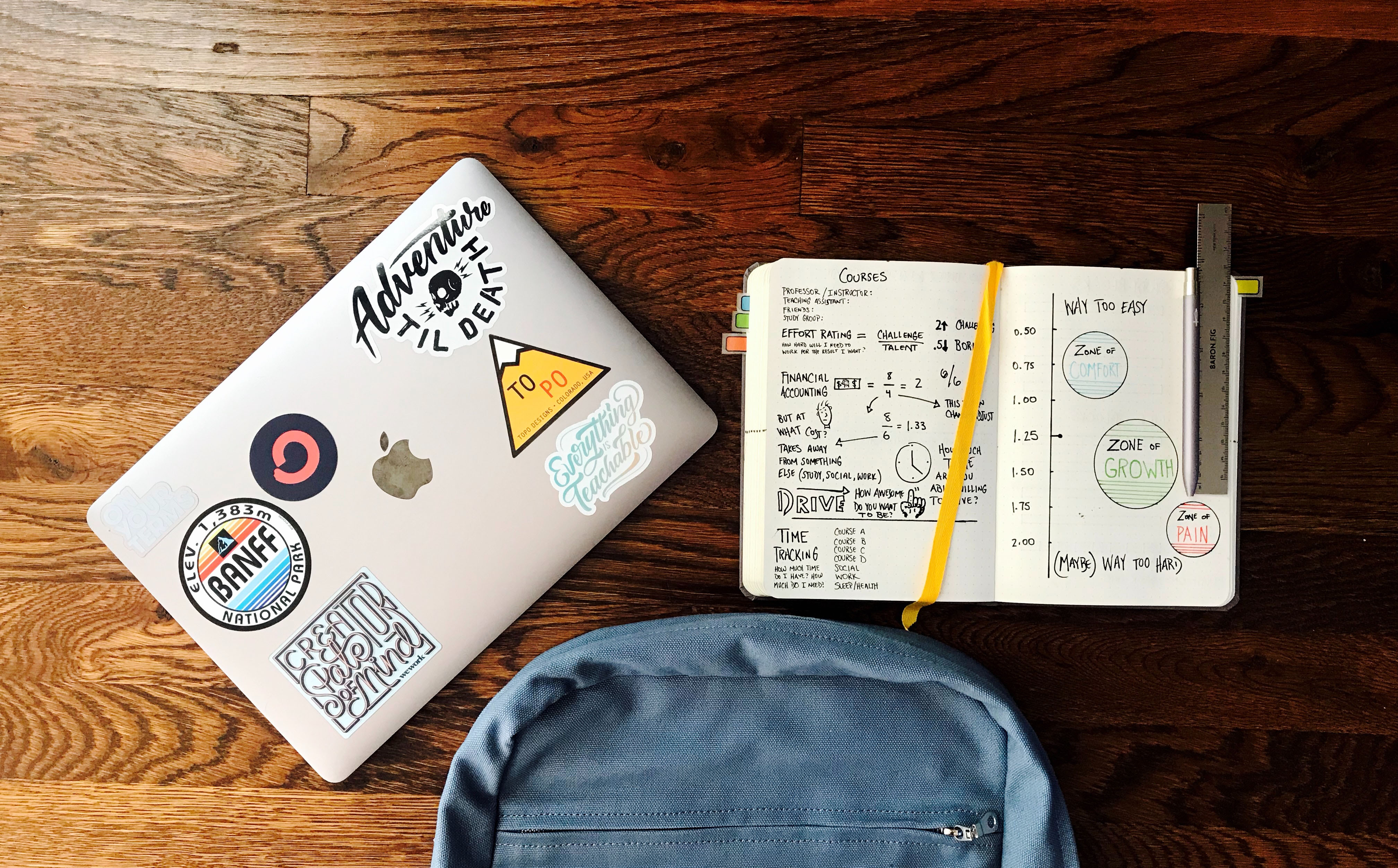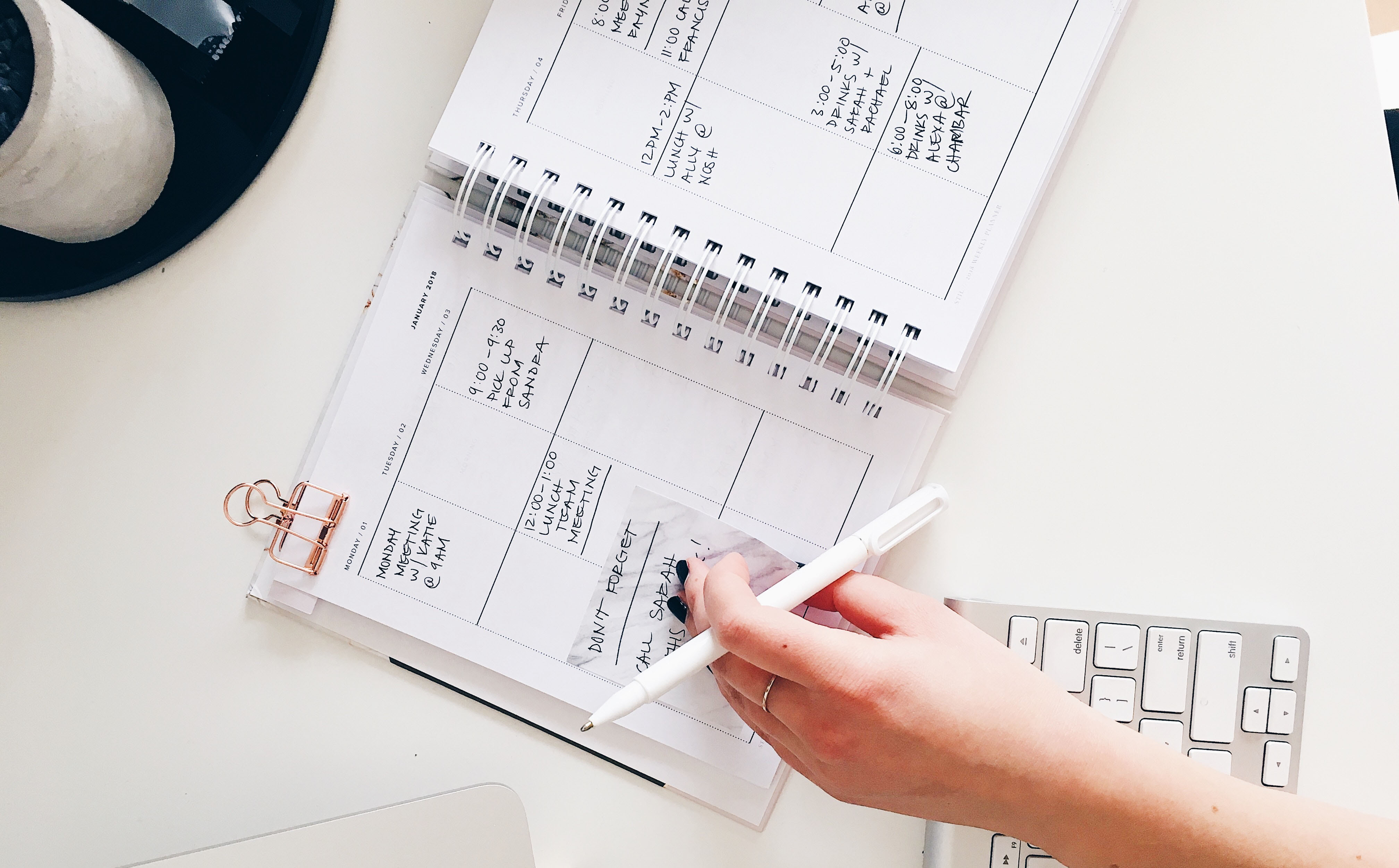
Finals are coming, we are looking at the schedule, the list of tasks we still have to do and we have the feeling that we will not be able to finish everything on time. We would like to stop the rotation of the Earth for a while to pause the time and focus on what is important: studying! Unfortunately, this is not a solution.
However, if you are one of those who feel like their ability to focus is so low that just a passing fly can distract you, and if you have a deadline for an interview or a marathon of finals, this article may help you.
Memory or focusing problems can be caused by multiple factors related to genetics, your personality, the environment in which you live, your diet, your daily habits or some mental pathologies.
If you think your lack of concentration is related to external factors, if you feel like your memory is failing or you cannot remember very simple or recent things, you should see a specialist. However, if you only have problems focusing when studying or doing a very long job that you don't like, or if you want to optimize your time, you can follow these tips:
1. The spot you choose is essential
Start by looking for the perfect place. It is essential that there is a good light not to tire your eyes, a good seat to protect your back (but not too much, we do not want to fall asleep) a discreet background sound or instrumental music and especially no technology. Take your mobile phone out of your room and avoid the computer to study (it is better to use material that can be written on or that has been printed). If necessary, disconnect from the internet and use the full screen mode to prevent icons from distracting you.
2. Focus on your goals
According to neurobiologists, the brain works with a reward system, use this to your advantage. Write a list of your goals; they can be themes, pages, topics, etc. and establish the estimated time you plan to accomplish them, and then add a reward. Example: "This week, I will finish studying theme 1 and to celebrate it I will go to the restaurant with my friends in my favourite place." This way, your brain will know that after the effort, something good is waiting for you, which will also improve your results.
3. It is all about the habits
You should not study when you only have a few minutes left after you have done your other tasks, such as cleaning the house, doing laundry, going to the gym or cooking. You have to see studying as a job. Set a day and time to study and stick to it, so it will be easier to be responsible and focus on what you do. This means that you need to consider both study and rest schedules, taking short breaks while studying can help you rest your mind and better synthesize information. Just make sure that the break times are not longer than the studying times ;)
4. Avoid distractions
You are the captain of your mind, not the other way around. There is a myth that many biologists have denied: the brain is not multitasking, which means you can't do several things at once. Every time you distract yourself or think about something else, the brain must disconnect from the previous task to succeed in connecting.
What should you do in these cases?
Start by making a list of all the concerns and remaining things you have in mind before you start. This way, you won't have these things bothering you later. While you are studying, make sure that your mind does not guide you to other themes, let your thoughts evaporate and focus on your studies. The "Okay, I do this now or else I'll forget" does not exist, it is time to study!
5. Practice meditation
A group of investigators led by Yi-Yuan Tang demonstrated in a scientific journal called PNAS that 20 minutes of daily meditation can improve your focus and reduce fatigue, as well as helping you to have a more rested mind. You don't need to be an expert; you can just sit down, close your eyes and breathe, or use the many applications available that offer you guided meditations.

6. Avoid monotony
Oftentimes, when we focus on the same thing, we start to get bored or our minds get overwhelmed. The way to avoid this is to vary the materials. You can dedicate two hours to each theme, or juggle very different themes, such as literature and mathematics for example, this will keep you interested and focused.
7. Get to know how you work
We all learn and memorize in different ways, maybe images work better for you, perhaps you prefer to listen to your own voice, to repeat several times, to make drawings or to use memory cards. Test and mix different techniques, that is how you will get the best results.
8. Start with your priorities
Do not leave your homework for the end of the day, the brain is more disposed during the first hours of the day, after a good rest, or after a good walk; these are the times you should take advantage of to perform the most tiring, unpleasant or labour-intensive tasks.
9. Get some sleep
Not getting enough sleep to study at night for 4 consecutive days is not a good idea, either for your results or for your health. When we sleep, our brain synthesizes information. This is why it is essential that your sleep is of good quality with sufficient hours. It is better to study a few hours less and to sleep a little more than to lose that extra effort.

10. Focus on your diet and stay hydrated
Let's be honest, eating and drinking are activities whose function is to nourish and maintain the body's functions, including the mind. If you were driving a car and you would like to improve its performance, you would use a better quality gasoline, would not you? The same is true for your body.
- Avoid processed products high in saturated fat or sugar, they will give you an energy boost at first, but a few minutes later you will want to take a nap. They also affect your focus.
- Avoid alcohol and very sweet drinks.
- Eat plenty of fruits and vegetables which will provide you with the sugars you need to keep your brain functioning and that will fill you with energy. Eat more of the ones that are rich in magnesium and potassium.
- Drink plenty of water to keep yourself hydrated.
11. If you don't get enough vitamins and minerals: take supplements.
You should not be afraid of food supplements, especially if they are natural and of good quality. Many times, they can help you reach the ideal level of vitamins or minerals that we do not get through our diet. Remember that due to poor harvests, an unbalanced diet or changes in our diet, we may not reach the minimum recommended dose. You can consult a doctor for an analysis and check if you need to supplement yourself during specific periods of time to strengthen your focus and health.
By taking into account the need of many people to improve their focusing and brain activity, our experts have developed an ideal supplement to improve your memory and energy. It has been created from natural products, without additives or GMOs to ensure a safe intake of the supplement with effective results.
If you need a helping hand to continue studying or to improve your focus, the BrainFood Complex is for you. Find it on our online shop or on Amazon!
References:
Short-term meditation training improves attention and self-regulation, PNAS, https://www.pnas.org/content/104/43/17152 – Ágilmente, Estanislao Bachrach.


